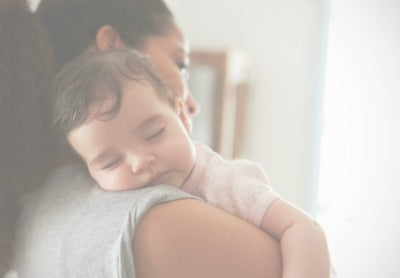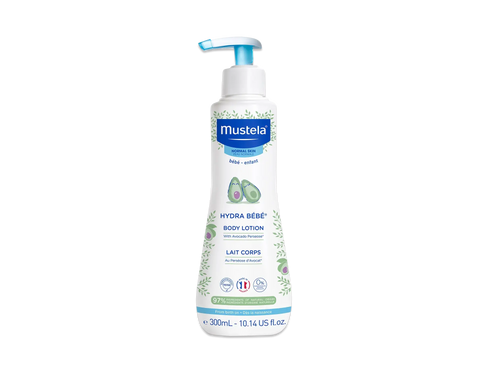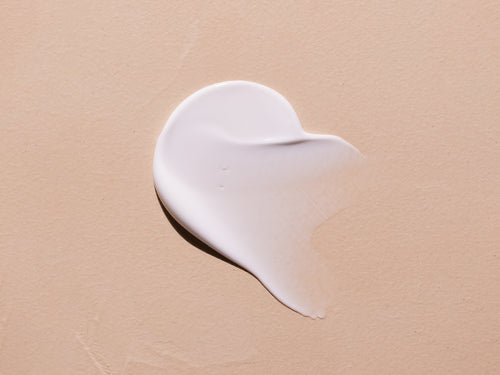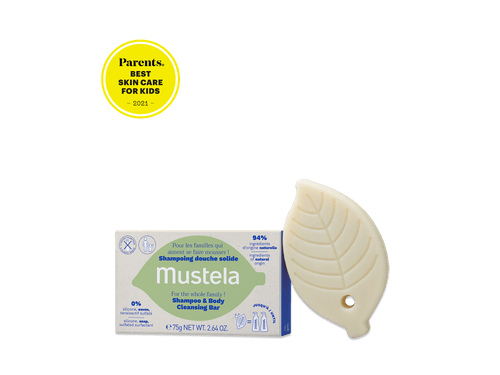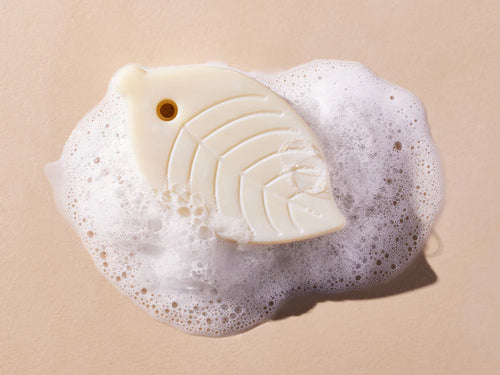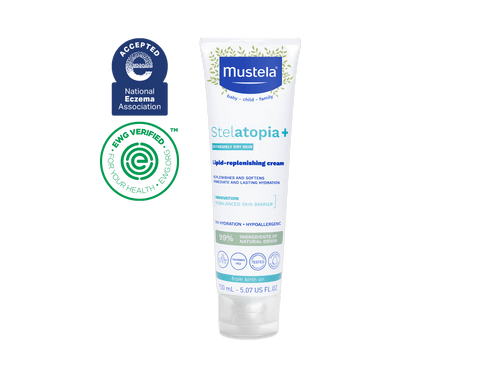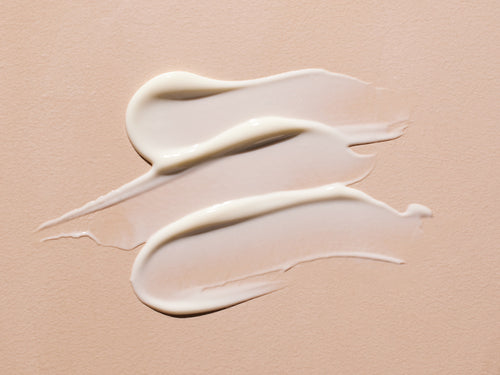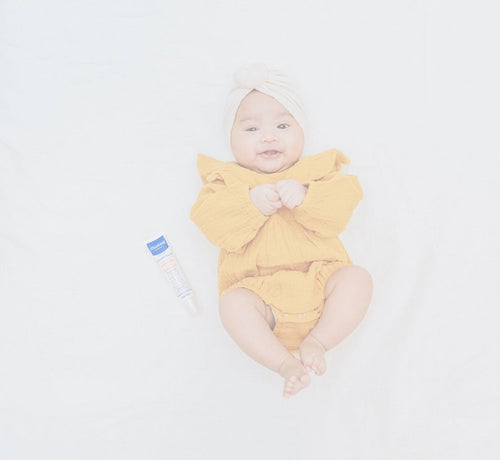Now that your baby has reached the two-month mark, you’ve probably gotten the hang of most of the critical parenting tasks. You’ve mastered the art of changing dirty diapers and have developed the perfect daily hygiene routine. There’s nothing you can’t do for your 2 month old baby!
It probably feels like your little one is growing and developing at the speed of light. This means you may start noticing new behaviors and habits, which can be both exciting and daunting.
Sometimes, it can be hard to know what to expect from your infant and how to know if they’re developing as they should be.
In this post, the baby experts at Mustela will tell you everything you need to know about caring for your 2 month old baby. We’ll provide detailed information on how your baby’s development, senses, motor skills, feeding, and sleeping habits should look.
We’ll also cover immunizations, general childcare tips, when to be concerned about your 2 month old baby, and, finally, the importance of taking time out for yourself as a new parent.

Caring For Your 2 Month Old Baby
As we’re sure you know by now, caring for a new baby is a lot of work! Between juggling sleeping schedules, changing countless diapers, and feeding around the clock, it can feel like you barely have time to get anything else done.
But between the late nights and early mornings, we find little moments of joy and awe that make raising a child one of life’s most rewarding experiences.
To make this time of new experiences a little simpler for you, we’ve created a comprehensive guide to caring for your 2 month old baby, packed with tips and tricks to reduce some of the stress that comes with parenting.
Your 2 Month Old Baby’s Development
Your 2 month old baby has already grown a considerable amount. On average, female babies weigh about 11 pounds and are 22.5 inches in length (height) at two months of age. Two-month-old males are slightly larger, with an average weight of 12.2 pounds and an average length (height) of 23.25 inches.
It’s important to remember, however, that these are just averages, not guidelines. Each and every baby follows a different development path. So if your baby is slightly bigger or smaller than the averages, it’s definitely nothing to worry about.
Your 2 Month Old Baby’s Senses

Sense Of Sight
At around two months old, your little one’s vision is developing rapidly, but they can only see clearly up to two feet in front of them, as babies are born near-sighted. Their visual acuity (how clearly they’re able to see) is still developing at this age.
They will also begin to distinguish between different colors and shapes, so be sure to keep introducing bold, colorful toys and books into their world.
At this point, your little one will start to recognize you and your partner’s faces! They will likely begin responding to seeing your smile by smiling back and may open their mouth at the sight of a breast or bottle.
They’ll likely also start following movements with their eyes, such as when you come into and out of their vision by walking across the room.
Also around this age, your little one’s eyes will start to work in unison, and any previous “cross-eyed” appearance should start to diminish as your baby’s eye strength develops.
Sense Of Hearing
As we know from pregnancy, babies develop hearing long before they’re born and have been listening to the noises of the outside world from within the womb.
The sounds of day-to-day life, as well as music and noise-making toys, are fascinating to babies of this age, so be sure to let them soak it all in!
Your little one will also begin to recognize you and your partner’s voices at two months old. They will know these voices as mommy and daddy’s voices and will find them soothing. So continue talking, reading, and singing to your little one as much as possible!
This chatter helps your little one to learn valuable lessons about tone, pitch, and conversation. Take turns with your baby when they “talk” to you and try repeating their noises back to them to hear their reaction. Responding to your baby this way can encourage speech development.
Sense Of Touch
As 2 month old babies aren’t able to reach out and touch objects easily, they rely on adults to fulfill their need for touch. But there’s more to this than simply cuddling your baby.
Introducing varying textures and temperatures is important in helping your little one learn about the world around them. You can make this fun by incorporating songs, rhymes, and games into your touch time, as well as the usual abundance of hugs and kisses!
Additionally, many 2 month olds find baby massage particularly comforting and calming. An optimum time to perform baby massage is after bath time, just before getting ready for sleep. Not only is this technique soothing for babies, but it also deepens your bond with your little one.
We love using our Baby Oil for baby massage as it’s gentle, moisturizing, and relaxing on babies’ skin!
Sense Of Smell And Taste
Just like adults, your baby will favor pleasant smells at two months of age and will likely turn away from unpleasant smells. Sweet tastes also tend to be preferred over bitter ones at this age.
Your little one will know your scent well by now and will find the taste of breast milk calming and soothing. They’re not quite ready for solid foods yet, so keep it simple by sticking to what they know and love.

Your 2 Month Old Baby’s Skill Development
Motor Skills
At the two-month mark, your baby will begin developing several new physical abilities. Here are just a few milestones to look forward to:
- Smiling and making facial expressions
- Stronger, more distinct kicking while your baby is on their back
- Clasping objects in their tiny baby hands
- Opening and closing of their fists
- Using their arms to lift their shoulders off the ground during tummy time
- Moving their arms around more vigorously
Just as with your baby’s height and weight, the timing of these motor skill achievements is just a rough average. If your baby hasn’t reached a particular milestone by now, it’s not something you should worry about.
For instance, your little one might have started opening and closing their fists at four weeks old, but might not start lifting their shoulders off the ground until 3½ months. Not a problem! Every baby is different.
Language Skills
While your baby can’t speak yet, they can most certainly make noise! Around the two-month mark, your infant will begin to experiment with their vocal cords. This means plenty of cooing, gurgling, vowel sounds, squealing, and, of course, crying.
At two months of age, it’s common for your baby to begin crying more often and for longer periods. As their nervous system matures, little ones can feel overwhelmed by stimuli.
They can also become overtired and cranky easily, even when it seems as though their immediate needs have been met.
It’s important to trust your instincts during crying episodes and to soothe your baby in the way you deem most comfortable and appropriate.
Your 2 Month Old Baby’s Feeding Schedule
One of the most common questions new parents have is: can I feed my 2 month old baby solid foods? The answer is no. Your little one’s digestive system still isn’t ready for solid foods. For now, you should only be feeding your baby breast milk and/or baby formula.
If you’re feeding your baby exclusively breast milk, your little one will need to eat every two to three hours. Unfortunately, this includes nighttime. You’ll probably need to feed your baby once or twice throughout the night. Allow your baby to feed until they seem full and content.
If you’re using formula, you only need to feed your 2 month old baby six or seven times per day. This is roughly every three to four hours.
Give your little one four to five ounces of formula at each feeding. Sometimes they will eat less, and other times they’ll want to eat more. Just as with adults, your baby’s appetite will vary, and that’s perfectly normal.
It’s also important to take care of yourself while breastfeeding to ensure you’re able to best care for your little one. Our Nursing Comfort Balm is a favorite among nursing mothers because it soothes, heals, and moisturizes the nipples, easing discomfort during feedings.

Your 2 Month Old Baby’s Sleeping Habits
The first two months of your baby’s life can often be inconsistent when it comes to sleeping, as they can’t yet differentiate between day and night. They haven't developed their own circadian rhythms, and therefore have no internal clock.
At two months old, getting anywhere from nine to 18 hours of sleep over 24 hours is considered normal. Although schedules vary greatly, this may consist of up to 10 hours of sleep at night time with an additional six to eight hours during the day, split into multiple naps.
Most 2 month olds still can’t sleep through the whole night, so if your baby is sleeping six to seven consecutive hours at night, consider yourself lucky! Four- to five-hour blocks of sleep are more common for 2 month olds.
To help your little one make it through the night with as little waking as possible, try not to let them sleep more than three consecutive hours during the day. If your little one has slept for three hours straight, wake them up and try to feed them. This will make sure they’re getting plenty to eat while also regulating their sleep habits.
You can also try teaching your baby to put themselves to sleep. When your little one seems fussy and drowsy, lay them down (on their back) in the crib and leave them alone until they doze off.
At first, they may begin to cry and it might take some time for them to fall asleep. Eventually, they will become comfortable falling asleep on their own.
It’s important that your baby’s sleep area, whether it be in your bedroom or their own, is quiet, calming, and peaceful. Avoid bright colors and distractions like hanging mobiles, as these can make it difficult for an infant’s brain to power down into sleep mode.

One final note on the topic: always put your child to sleep on their back. Never lay your little one down to sleep on their tummy, as this greatly increases the risk of Sudden Infant Death Syndrome (SIDS).
Along those same lines, swaddling should be stopped as soon as your baby can roll onto their tummy. This can happen as early as two months of age, so be sure to stop swaddling your baby as soon as they begin to exhibit signs of rolling over.
Your 2 Month Old Baby’s Immunizations
Your child has already had a few immunizations by the time they hit the two-month mark. Your little one has probably had two rounds of the Hepatitis B vaccination, one in their first several days of life and the second around four weeks old.
Now, your 2 month old baby is ready for their first big round of immunizations. Here’s what babies typically receive at their two-month visit to the pediatrician’s office:
- Polio vaccine (IPV)
- Rotavirus vaccine (RV)
- Diphtheria, tetanus, and acellular pertussis vaccine (DTaP)
- Haemophilus influenzae type B vaccine (HIB)
- Pneumococcal conjugate vaccine (PCV)
Fortunately, several of these vaccinations can be combined into one shot, so your little one will only receive two or three injections. It’s no fun watching your baby get shots, but it’s important for their health.
General Child-Care Tips
Babyproofing
Now that your baby is becoming a bit older—and more mobile—it is essential that you babyproof your home to ensure your baby’s safety.
If you haven’t already, be sure to get down on your hands and knees to view your home from your baby’s perspective. There are likely many concealed hazards present that you wouldn’t consider dangerous as an adult but are particularly dangerous to a 2 month old.
And, of course, it’s critical that you never, ever leave your little one unattended. This is true in all circumstances, but it’s especially important when your 2 month old baby is resting on a high surface or near water. Never leave your little one alone, even if it’s just for 10 seconds!
Skin Care
We’ve all heard the phrase “smooth as a baby’s bottom,” and there’s a good reason for it!
Newborn babies have very soft, delicate skin that’s prone to irritation from harsh products, so it’s crucial to avoid creams, cleansers, and wipes that aren’t specifically formulated for baby skin.
As baby skin is thinner and more fragile than adult skin, it’s important to use baby-friendly skin care products like Mustela’s.
If you’re in a pinch and need a quick clean-up, opt for our Cleansing Wipes to keep your little one’s skin clean and protected. For bath time, we love our 2-In-1 Cleansing Gel for your baby’s hair and body to make bath time effortless.
If your 2 month old has sensitive skin, our Stelatopia Cleansing Gel is the perfect way to clean and protect their skin each day.
Sun protection is also a vital part of skin care for your 2 month old baby. Using a product like our SPF 50 Mineral Sunscreen Lotion ensures that your little one’s skin is protected and hydrated without any of the harmful ingredients found in other sunscreen products.
It’s important to note that many infants begin to develop skin conditions — like cradle cap, eczema, and baby acne — at around two months of age. Keep a close eye on your baby’s delicate skin, and be sure to address any potential issues promptly to reduce irritation.

When To Be Concerned
There are a few red flags to keep an eye out for in your 2 month old baby. Here are some signs that you need to take your little one to the doctor:
- A temperature of more than 100 degrees Fahrenheit
- Difficulty breathing and/or severe wheezing
- Coughing that persists for more than a few days
- A sudden outbreak of a rash or hives that covers the entire body
- Vomiting or diarrhea that lasts more than 12 hours
If you notice any of these symptoms, make sure to take your loved one to the pediatrician’s office as soon as possible. And if you’re ever in doubt, consult your doctor for medical advice.
Self-Care For New Parents

As a parent of a 2 month old baby, your self-care routine may have fallen to the wayside. Putting your little one’s needs before your own is natural, but you must find time for yourself and the things you enjoy to maintain your wellbeing!
If you haven’t seen your doctor for your postpartum checkup, now is the perfect time to get that done. This checkup is important for your physical health and ensuring any wounds from birth are healing correctly, but it’s also necessary for your mental health.
It’s no secret that most parents of newborns are sleep deprived — it’s par for the course. As your baby approaches the two-month mark, their sleeping schedule tends to shift into longer rest periods, which is great news for tired parents!
Be sure to take advantage of your baby’s nap time by catching up on sleep when possible. After all, you can’t expect yourself to look after your little one to the best of your ability if you’re not caring for yourself.
As well as taking care of your sleep requirements, it’s important to develop a postpartum exercise routine (once you’ve been medically cleared to do so by your doctor, of course).
Start small and keep in mind that you’ve only recently given birth, so it’s completely OK if you’re not as fit as you were pre-pregnancy!
Additionally, taking part in hobbies or activities that you enjoy can work wonders for your day-to-day mood. Remember, even though your identity now involves being a parent, you’re still an individual with your own important needs to be met.
Taking time out to treat yourself to a massage, your favorite movie, or simply catching up on some well-earned sleep can often be enough to restore your energy and make you feel a little more human.
Keep Up The Great Work!

As a new parent, it’s natural that some days you feel like you’ve got everything under control, and other days, you feel like you just can’t get it right.
These ups and downs are all part of parenting a 2 month old baby!
Following the tips in this guide —such as establishing a sleep schedule, keeping baby’s skin protected with our SPF 50 Mineral Sunscreen Lotion, and maintaining a self-care routine — will ensure that your little one is healthy, happy, and thriving as you navigate these new experiences together.
For more information across a range of baby and parenting topics, explore the Mustela Blog!


